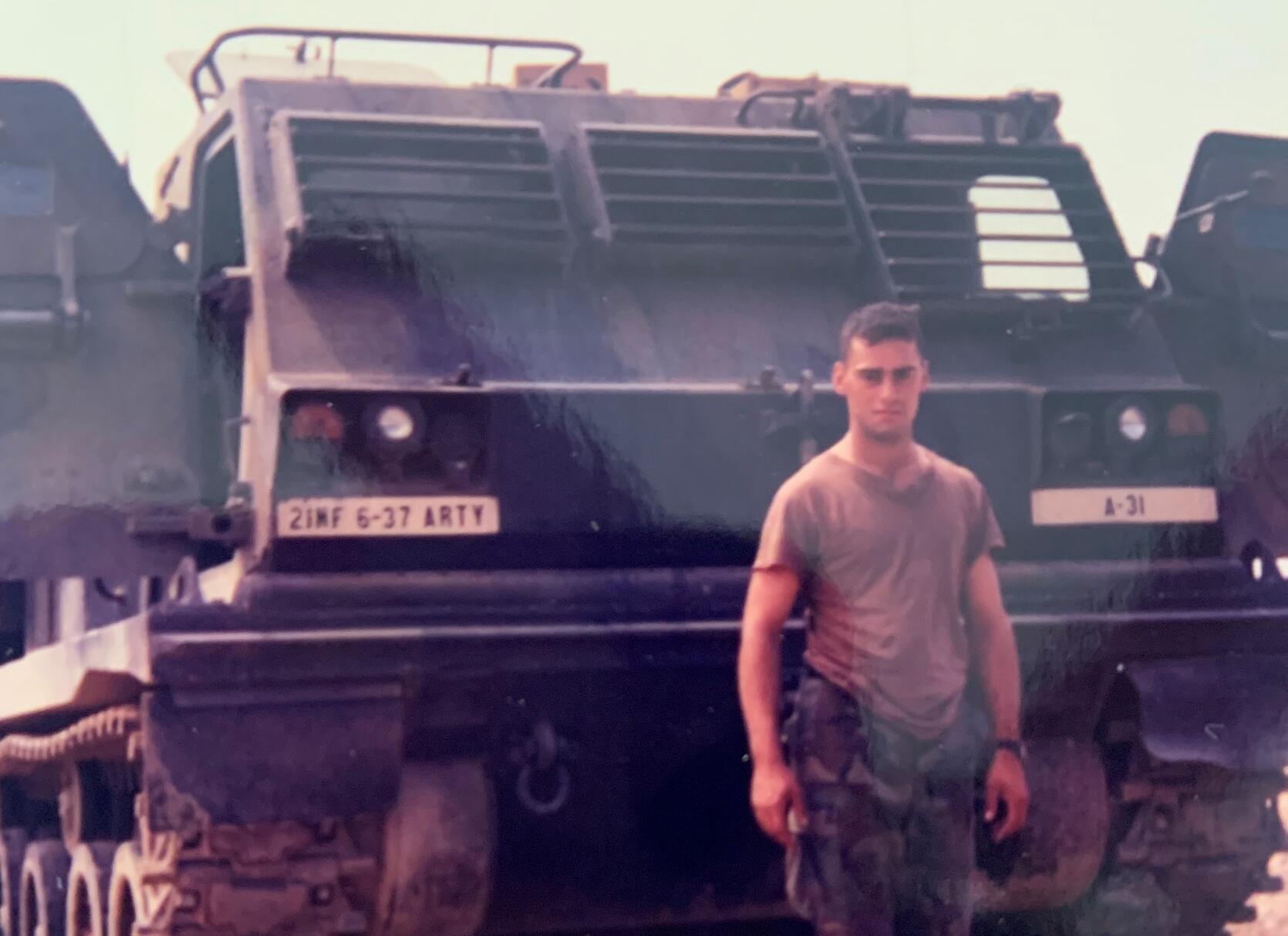- Massachusetts Rehabilitation Commission

Like many people in high school, Richard Patchin didn't know what the future had in store for him. "I really didn't have any idea about what I wanted to do," he said. Orphaned at age 15, Rich spent his teenage years in high school working and thinking of what to do next. That was until members of the armed forces visited his school as part of a recruiting drive in 1995. "They landed a helicopter in our field and did a whole day of activities with the students," he remembered.
During their visit, the recruiters answered questions about life as a soldier and the benefits available for enlisted soldiers. That piqued Rich's interest. He didn't have anything guaranteed after high school. He knew that in the armed forces, he would be able to learn skills, not worry about affording an apartment or food, and he would have financial assistance to pursue higher education degrees. When he graduated, Rich enlisted in the Army, a decision that would prepare him for his future career.
For the first two years, he was stationed at Fort Sill in Oklahoma, Nebraska, where he was trained in using the multiple-launch rocket system (MLRS), which was used extensively in Operation Desert Shield. "The entire time I drove the vehicle, I was amazed at the engineering it took to design and operate it," Rich shared. It's there where he first began to become interested in how systems worked together. "It was all digital, and part of the job was to learn how to maneuver the vehicle, safely load the munitions, operate the firing panel, and the digital communication system."
Rich learned during that time that one of the most critical parts of being a soldier is being able to solve problems. He was assigned to projects that focused on designing and testing several upgrades to a rocket's GPS and guidance system. "As long as you can follow orders, you can do a great job in the military," he said.
In 1997, he was transferred to South Korea to join troops on constant guard along the Demilitarized Zone (DMZ) that separates North and South Korea. Rich considers himself very lucky that he joined the Army when there weren't any actual conflicts in progress.
When he returned home in 1998, Rich began a career at State Street, starting in the mail room as he began taking college classes at night, with the help of the GI Bill, a federal program started in 1944 to help soldiers afford college. Rich attended Northeastern University at night and majored in Business Management and Information Technology (IT).
Over time, Rich moved from the mail room to the trading floor and into project management. He helped develop and manage new systems, including one that managed the firm's liquidity so that the federal reserve would approve State Street's acquisition of Deutsch Bank. "I'm the first person in my family to get a bachelor's degree. The Army was able to teach me that not only I was a hard worker – but I could manage projects and be successful," he said.
At the Massachusetts Rehabilitation Commission (MRC), Rich uses the skills he gained in the military daily. The same problem-solving techniques he used during a combat drill that won him a medal from his commanding officer, he uses to make sure colleagues have the tools they need to support the mission and vision of the agency. "If I'm having a stressful day, it's because a system is down and people can't do their job. That means that the individuals we serve aren't getting help, "Rich said. "In the Army, you don't get to quit. You must complete the mission. The same thing is true here in MRC. There needs to be a solution, and I'm helping to keep the organization on track."
While Rich may not be an active soldier, he sees his call to serve as the same as the enthusiasm he gets working at MRC. "There's a passion in people that work in government and state agencies."
On Veteran's Day, Rich reflects on his service fondly and is thankful for what he learned in the Army. "I think about gratitude," he recalled. "I'm lucky I could serve my country and wasn't injured or killed while serving. When I go to parades, I get choked up and make sure to tell veterans from WWII or Vietnam that I love them and thank them for their service."
"I have a lot to be grateful for."
